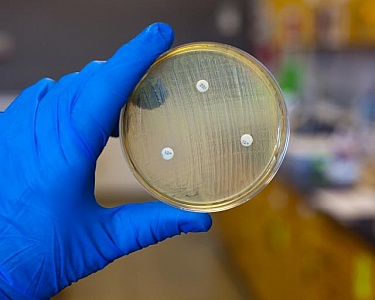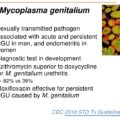Mycoplasma genitalium: was a little known microorganism until a recent study conducted by British Scientists uncovered its links to some sexual conditions. The bacteria also known as mgen STD lives on the ciliated epithelial cells of the urinary and genital tracts in humans and has been identified as a co-factor in the transmission of the Human Immuno Deficiency virus HIV the causative agent of AIDS.
Recently categorized as a sexually transmitted pathogen, this bacteria is responsible for many conditions including cervicitis and pelvic inflammation in women and urethritis in both men and women. With a genome sequence of 0.58 Mbp and 475 genes, this organism was regarded as a cellular unit with the smallest genome size (in Mbp) until recently when an even smaller unit was discovered. READ: Blue Wafflé Disease: WebMD Separates Facts From Fiction
According to the Centers for Disease Control (CDC), Mycoplasma Genitalium is more common than gonorrhea in the United States. The disease also affects around 250,000 people aged 16-44 in the United Kingdom representing 1 percent of the population according to UK census data.
Signs and Symptoms of Mycoplasma genitalium Infection
- Urethritis (inflammation of the urethra) with a mucopurulent discharge.
- Painful or burning sensation while urinating sometimes accompanied by watery discharge.
- Inflammation of the cervix
- Bleeding during or after sex
- Pelvic inflammatory Disease (|PID)
- Endometritis and Salpingitis.
Implications of Mycoplasma genitalium infection
- It has a negative effect on fertility
- It aggravates the symptoms of HIV and other similar conditions
- Mycoplasma genitalium infection has been linked with the development of prostate cancers, ovarian cancers, and lymphomas.
- It significantly increases the risk of pre-term birth and spontaneous abortion diagnosis of Mycoplasma genitalium
The standard protocol for the diagnosis of Mycoplasma Genitalium is Nucleic Acid Amplification Tests (NAAT) such as Polymerase Chain Reaction. (PCR). Diagnosis is made on a positive sample from an infected area such as:
- Urethral swab in males or first catch urine
- Self-collected or physician collected vaginal swabs
- Endocervical swab
Treatment
Treatment of Mycoplasma Genitalium like other sexually transmitted diseases is by the administration of antibiotics after confirmation of the disease by a qualified clinician. Self-treatment for sexually transmitted diseases such as Mycoplasma Genitalium should be avoided because the practice has been shown to lead to the development of resistant strains.





